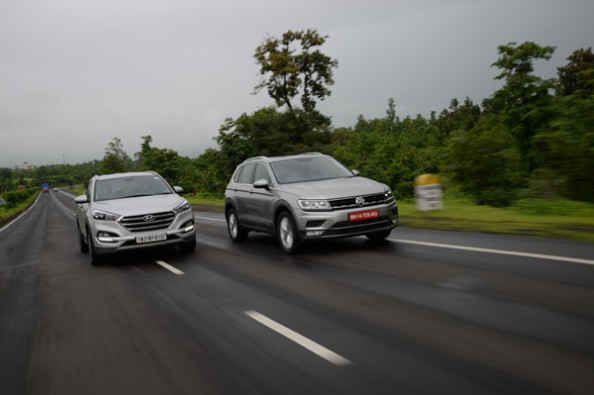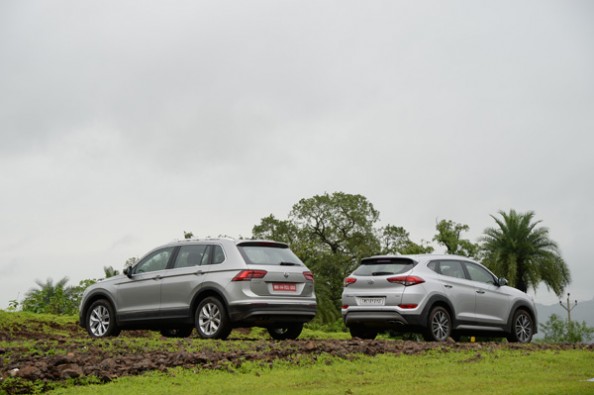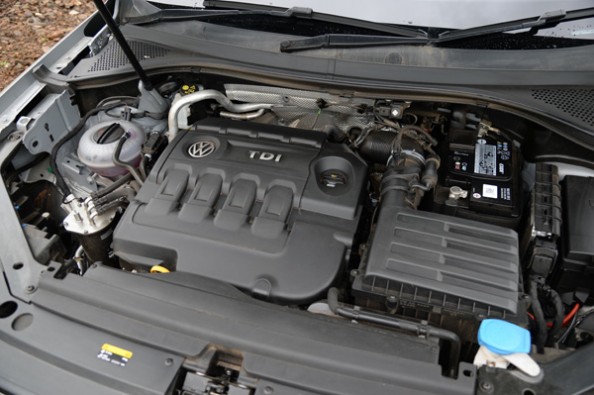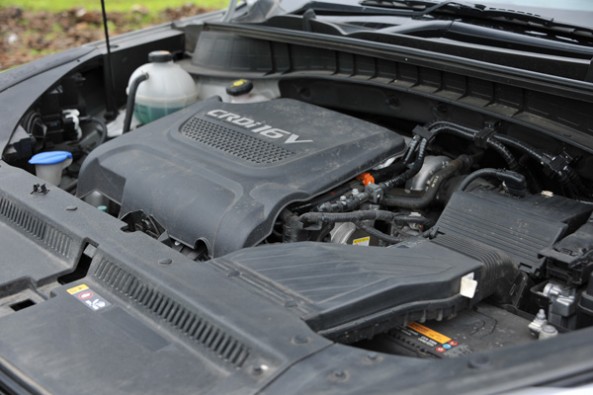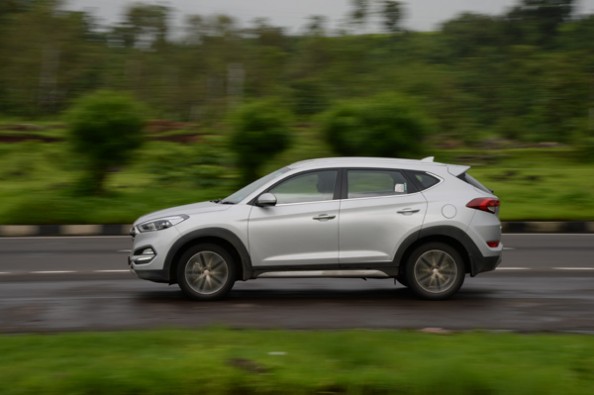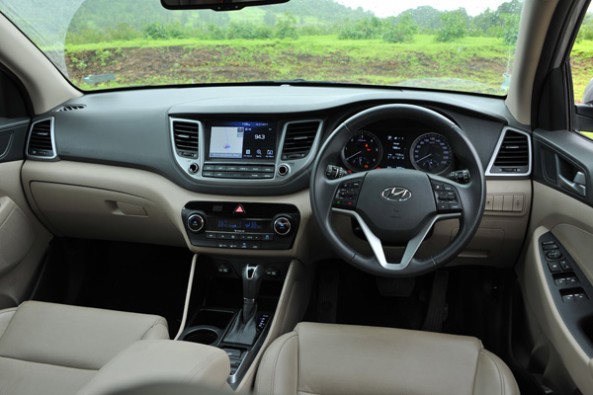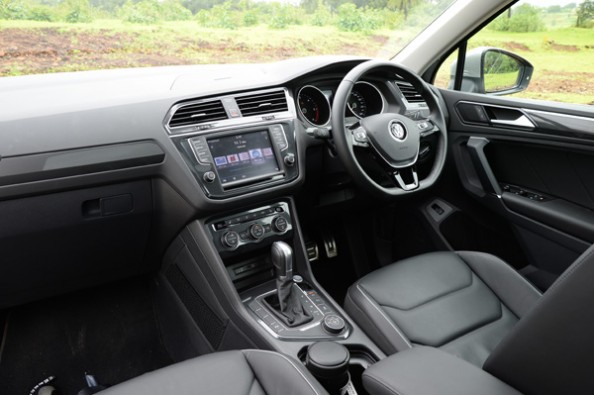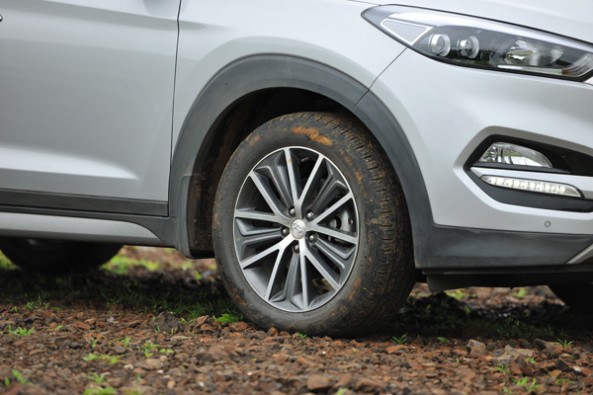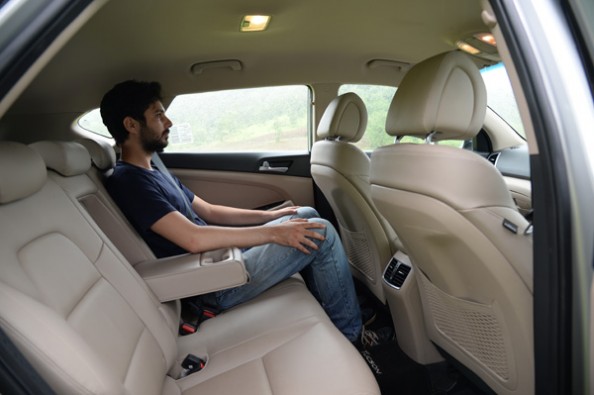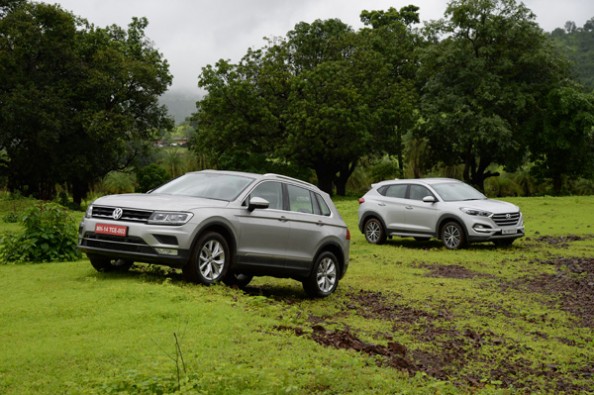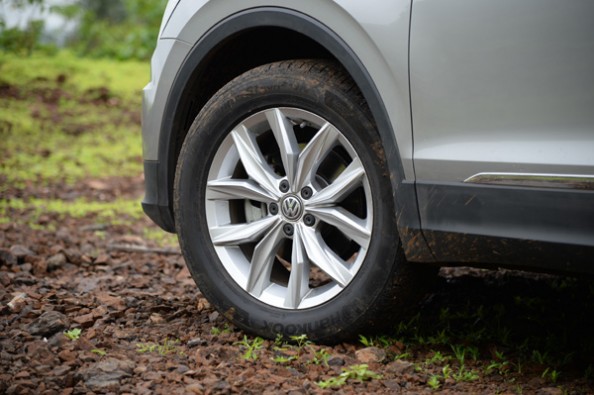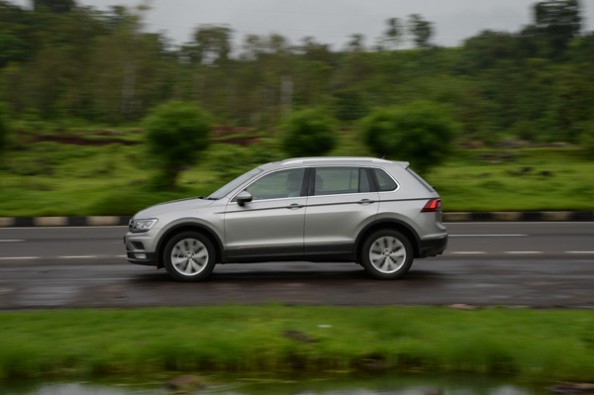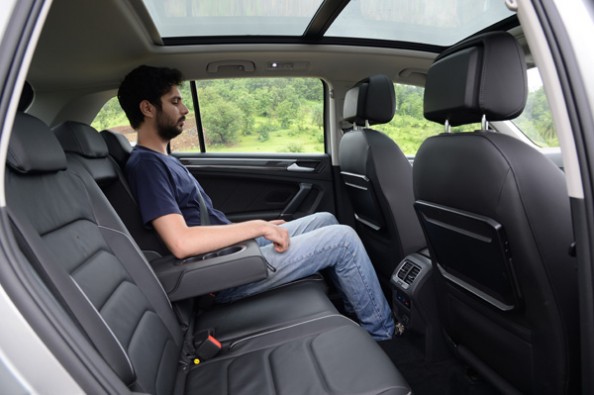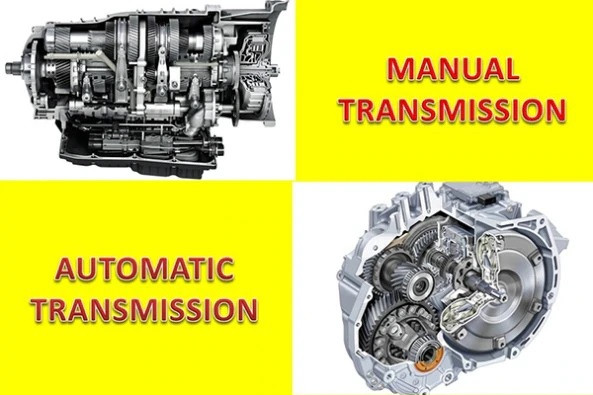The new Tiguan has been positioned as a rival to small luxury German SUVs. Hyundai’s Tucson has been positioned with the same intent. While the Tiguan does cost ₹6 lakh more than the Hyundai. So, is the Tiguan worth the extra money? Let’s find out.
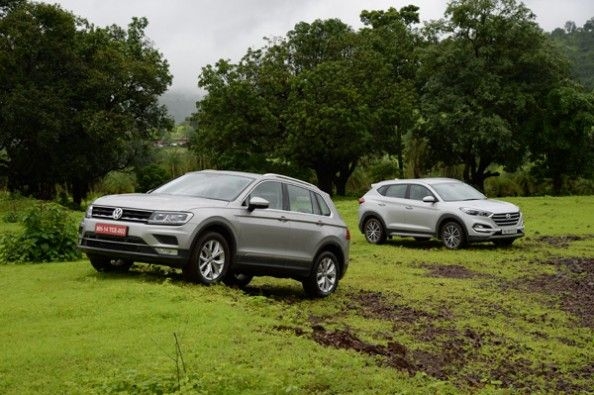
On the outside
The Tucson is the second-biggest SUV in Hyundai’s line-up and it certainly has a strong road presence. The car’s pulled-back headlamps and defined grille, the kinked wheel arches and pinched rear window line all work to give it the presence of a luxury SUV.
The Tiguan is styled in true VW fashion, smart and clutter-free, and lots of neat, straight lines. The large, full-LED headlamps help it stand out, but the rest of the design looks fairly safe. The rear features smart, hockey-stick-shaped LED tail-lamps. Overall, this car does look handsome, but the Hyundai trumps it in this department.
On the inside
When you step inside either car, they offer a sense of familiarity. The Tucson has beige and black interiors, while the Tiguan is fitted with black upholstery and dark grey accents on the dash. Despite its black interiors, the VW feels airier, thanks to its larger windows and massive panoramic sunroof, a feature the Tucson doesn’t offer. Both cars come with Android Auto/Apple CarPlay-compatible touchscreen units and a full-colour multi-information display that the driver can use.
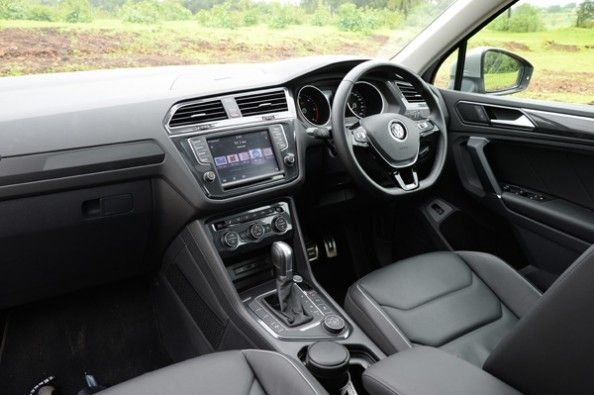
Both cars feature leather on the inside, but the Tiguan’s feels a little plusher and the front seats are more comfortable. There are powered driver seats with adjustable lumbar support and heated exterior mirrors on both cars. The Tiguan however has a memory function for the driver’s seat and wing mirrors, and comes with a heated function for the front seats. You get a more commanding view from behind the wheel of the Tucson, while the Tiguan feels more car-like.
The Tiguan’s second row features a dedicated climate-control zone, while the Tucson gets two zones at the front and two vents for rear passengers. The Tiguan offers more knee room at the back, but the Tucson is wider and the transmission tunnel is less intrusive in this cabin, making it better for three people to sit comfortably. The Hyundai also has more comfy rear seats - thigh support is great while the Volkswagen’s seat feels a bit flat. The Tiguan’s boot space stands at 615 litres, while the Tucson’s is at 513 litres. The Hyundai offers a full-size spare tyre, whereas the Tiguan only comes with a space-saver. The VW, however, is fitted with a tyre pressure monitoring system and unique, self-sealing tyres (which fill with a gel that can seal small cuts and punctures).
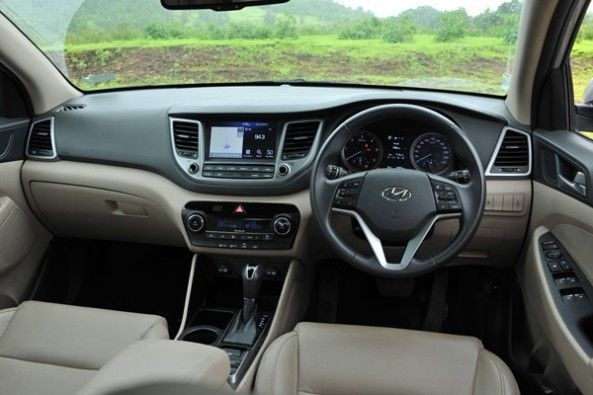
The Tiguan’s cabin feels a step ahead in terms of overall fit, finish and materials than the Hyundai. VW has paid close attention to the smaller details – there’s a height-adjustable boot floor and clever slide-out cupholders in the stowage space behind the gear selector.
The VW offers more kit too – it comes with a panoramic sunroof, rain-sensing wipers, intensity adjustable cabin lighting and full-LED headlamps. The Tucson offers dual-barrel LEDs for the low beam and a halogen high beam. Both cars come with a lot of safety tech, with each offering six airbags and a raft of electronic assists, including ABS and ESP.
From behind the wheel
The Tiguan isn’t available with a petrol, so we’ve compared both in their 2.0-litre turbo-diesel guise. The VW makes 143hp and is mated to a seven-speed dual-clutch automatic gearbox. The engine sound noisy from the outside, but once you sit inside, it’s quite well insulated. This motor is quieter than the Hyundai, likes to be revved more and is more responsive. The VW also comes with paddle shifters for when you’re in the mood.
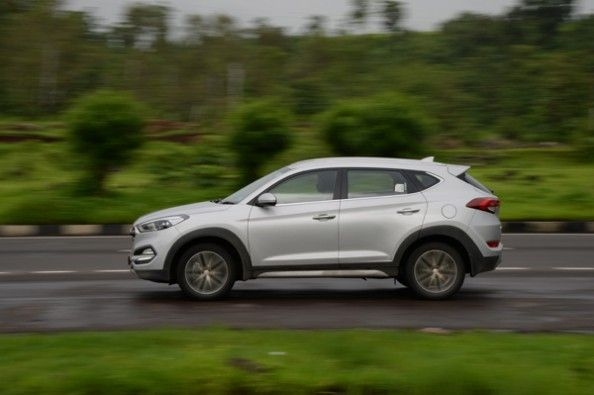
The Hyundai’s 2.0-litre turbo-diesel engine makes 185hp and uses a six-speed manual or you can even have it with an automatic gearbox. The six-speed automatic is largely smooth but it isn’t as nice as the VW.
The Tucson is a front-wheel drive car while the Tiguan uses a Haldex-style all-wheel-drive system. The VW can hit 100kph in a quick 10.55sec, which is a second slower than the lighter and more powerful Tucson however. The Tiguan struggles a bit above 160kph, while the Tucson can cruise at speeds over 170kph with more ease. The Tiguan has four drive modes that you can control using a rotary dial near the gear selector – Snow, Normal, Off-road and Off-road Individual.
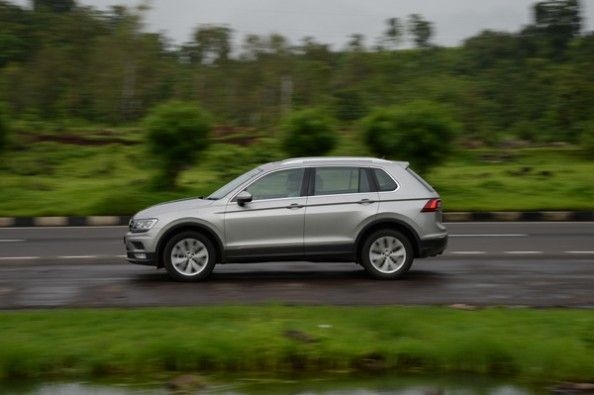
The Tucson has three modes to offer – Eco, Normal or Sport – but these don’t have the same adjustability of the Tiguan.
Ride quality in the Tiguan feels quite good – it’s composed at highway speeds and is fairly comfortable on rough roads. The Tucson, here, handles rough patches of the road better, and it’s great on the highway and handles well when you’re driving quickly through turns. The VW makes more sense if you intend to drive more, while the Tucson is more comfortable overall.
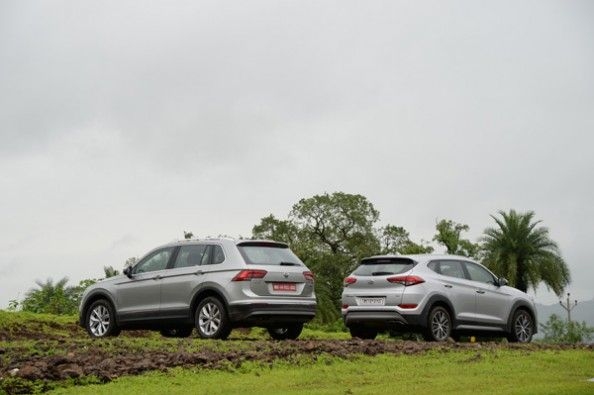
Which one should you buy?
The Tiguan offers solid build quality, luxurious feel and top-class driving dynamics. But, it’s hard to justify the ₹29.8 lakh (ex-showroom, Delhi) price, (even when you account for the levels of equipment) at ₹23.8 lakh, the Tucson’s has a massive price advantage. It feels more like an SUV than the Tiguan as well. It delivers what Indian SUV buyers need - image, comfort and power. So, while Tiguan owners will be happy with their car, in this test, the Tucson does the better job as an SUV for the Indian market.
